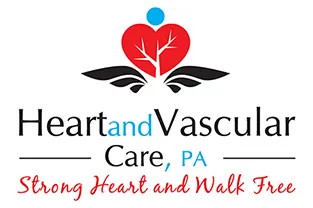
Understanding the heart's health often involves a tandem evaluation using Electrocardiograms (EKGs) and Stress Tests. In this comprehensive exploration, we delve into the significance of these diagnostic tools, their distinct roles, and how they collaboratively provide a nuanced view of cardiovascular function.
EKGs
An Electrocardiogram (EKG or ECG) is a fundamental diagnostic tool used to assess the heart's electrical activity. It involves the placement of electrodes on the skin, which detect and record the electrical impulses generated by the heart during each heartbeat. This non-invasive test offers crucial insights into the heart's rhythm and electrical conduction.
-
Components of an EKG: EKG tracings consist of specific waves and intervals, each representing a different cardiac cycle phase. The P wave signifies atrial contraction, the QRS complex represents ventricular contraction, and the T wave indicates ventricular recovery.
-
Diagnostic Utility: EKGs are invaluable in diagnosing various cardiac conditions, including arrhythmias, myocardial infarction (heart attack), and conduction abnormalities. They serve as a baseline assessment and aid in monitoring changes over time.
Stress Tests
Stress tests, also known as exercise tests or treadmill tests, evaluate how the heart responds to increased demand. These tests provide insights into cardiovascular fitness, identify abnormalities that may not be apparent at rest, and assist in determining the presence of coronary artery disease.
-
Procedure Overview: During a stress test, the individual is typically asked to walk on a treadmill or pedal a stationary bike while connected to an EKG. The intensity of the exercise gradually increases, simulating the heart's response to physical exertion.
-
EKG Monitoring: Continuous EKG monitoring during a stress test allows healthcare providers to observe changes in heart rate, rhythm, and electrical activity as the exercise intensity varies.
-
Indications for Stress Tests: Stress tests are commonly employed to evaluate chest pain, assess cardiovascular fitness, diagnose coronary artery disease, and monitor the effectiveness of cardiac interventions.
Combining Forces
The marriage of EKGs and stress tests enhances diagnostic precision. Incorporating EKG monitoring during stress tests provides a dynamic view of the heart's electrical activity under varying exertion levels. This dual approach allows healthcare providers to pinpoint abnormalities triggered by exercise and correlate them with specific points in the stress test.
Indications for Joint EKG and Stress Test
The combination of EKGs and stress tests is particularly indicated in scenarios such as:
-
Evaluation of Chest Pain: When an individual experiences chest pain, combining these tests helps assess the electrical activity and potential ischemia or reduced blood flow to the heart during exercise.
-
Assessment of Arrhythmias: For those with known or suspected arrhythmias, the joint evaluation provides a comprehensive understanding of how the heart's electrical system responds to physical stress.
-
Monitoring Cardiac Rehabilitation: In individuals recovering from heart-related issues, these tests aid in gauging cardiovascular improvement and adjusting rehabilitation programs.
Interpreting Results
Interpreting EKGs and stress test results requires expertise, as variations may be subtle and context-dependent. Changes in the EKG during stress testing may include ST-segment depression, T-wave abnormalities, or arrhythmias, providing clues to the presence of underlying cardiovascular conditions.
Limitations and Considerations
While EKGs and stress tests offer valuable information, they do have limitations. False-positive or false-negative results can occur, and certain conditions may not manifest during the brief duration of the test. Patient characteristics, medications, and pre-existing conditions can also impact results, necessitating a comprehensive assessment by healthcare providers.
Incorporating Advanced Imaging
Sometimes, healthcare providers may complement EKGs and stress tests with advanced imaging modalities such as echocardiography or nuclear imaging. These techniques provide detailed anatomical and functional information, offering a more comprehensive view of cardiac health.
Conclusion
EKGs and stress tests, when used in tandem, create a powerful diagnostic synergy, offering a nuanced understanding of the heart's electrical activity and its response to physical stress. This synchronized approach enables healthcare providers to uncover hidden cardiovascular issues, tailor interventions, and guide individuals toward heart health. As technology advances and our understanding of cardiac physiology deepens, this combination of diagnostic tools remains a cornerstone in assessing and managing cardiovascular conditions.
Disclaimer:
The information on this website is provided for educational and information purposes only and is not medical advice. Always consult with a licensed medical provider and follow their recommendations regardless of what you read on this website. If you think you are having a medical emergency, dial 911 or go to the nearest emergency room. Links to other third-party websites are provided for your convenience only. If you decide to access any of the third-party websites, you do so entirely at your own risk and subject to the terms of use for those websites. Neither Heart and Vascular Care, PA, nor any contributor to this website, makes any representation, express or implied, regarding the information provided on this website or any information you may access on a third-party website using a link. Use of this website does not establish a doctor-patient relationship. If you would like to request an appointment with a health care provider, please call our office at (407) 730-8970.


